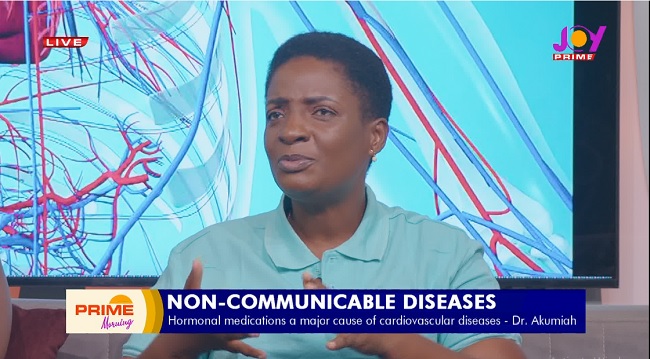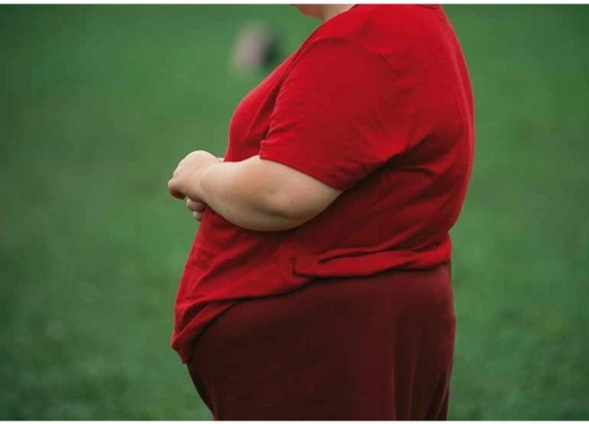Medical experts have raised critical concerns about how society is increasingly contributing to a rise in obesity cases in Ghana.
In the nineties (90s), 10% of children were obese, but that number has doubled currently to 20%, a significant rise over the years, deemed a huge problem in the country.
They point to criticisms against others who lose weight, saying the attitude has made it difficult to curb the challenge, as victims fear being tagged with negative perceptions.
The idea of weight loss scares the majority of Ghanaians, especially females, and every society has a perception about certain things and will always have their opinion about things they think are unusual to them.
This makes most people afraid to inculcate daily habits that could help them lose weight to avoid questions about whether they are sick or ignoring their health.
Specialist Family Physician at CREATE Ghana, Dr. Nana A. Konadu Darko, said on Joy Prime’s Prime Morning show that it is gradually becoming a huge problem because some people would prefer to add on weight even though they may be naturally thin.
“Our society in terms of our values, food, and sometimes individuals. When you put on weight, people say you’re looking nice; you’re looking good, and everything is okay. But when you start losing weight, they ask questions like, are you sick? Is something wrong? Are you worried? While you may have noticed that it’s not good for your health so you’re trying to do something about it.

“I know people who have lost so much weight in the hospital and they come and they’re like their relatives, husbands, and wives are like, do they have HIV? Is there something they should know? Whilst it’s nothing except they‘re just trying to lose their weight.”
Some people have a predisposition to having more weight, particularly in families, but Dr. Darko said it does not make it right, although it could be genetic.
She said that “It’s not about getting to the ideal weight tomorrow. It’s about having that thought at the back of your mind that my choices will impact my body and what happens to it.”
The physician cited some daily human activities that complement obesity: sitting at home with children for longer hours to watch devices; not much physical education (PE) in schools these days; and sitting down at the workplace for six hours straight (a health risk).
Other factors that predispose one to obesity include unhealthy eating, lack of exercise, excessive stress, certain mental health disorders, and hormonal conditions such as hypothyroidism.
Latest Stories
-
World Bank forecast a high inflation of 17.2% for Ghana in 2025
4 minutes -
Ghana set to roll out chip-enabled passports from April 28
7 minutes -
Mohammed Kudus linked to €100m Saudi move
23 minutes -
Builsa North MCE assumes office, urges workers to embrace teamwork
28 minutes -
Ghana’s economy to grow slowly at 3.9% in 2025 – World Bank
30 minutes -
Kafui Danku, Sam George address Bimbo Ademoye’s copyright infringement concerns
39 minutes -
Today’s Front pages: Thursday, April 24, 2025
57 minutes -
Ansa-Asare defends Chief Justice amid travel fund allegations
1 hour -
CDM urges global oversight as Ghana risks violating international judicial norms
2 hours -
CDM condemns Chief Justice suspension as constitutional breach
2 hours -
CDM questions credibility of committee probing petitions against Chief Justice
2 hours -
Ex-Deputy AG questions validity of Council of State’s prima facie case against Chief Justice
2 hours -
Military training for National Service Personnel set to begin in August 2025
2 hours -
All permanent PMMC staff are still at post; only contract staff laid-off – Sammy Gyamfi
2 hours -
‘L.I 2462 will be revoked immediately Parliament reconvenes’ – Sammy Gyamfi
2 hours

